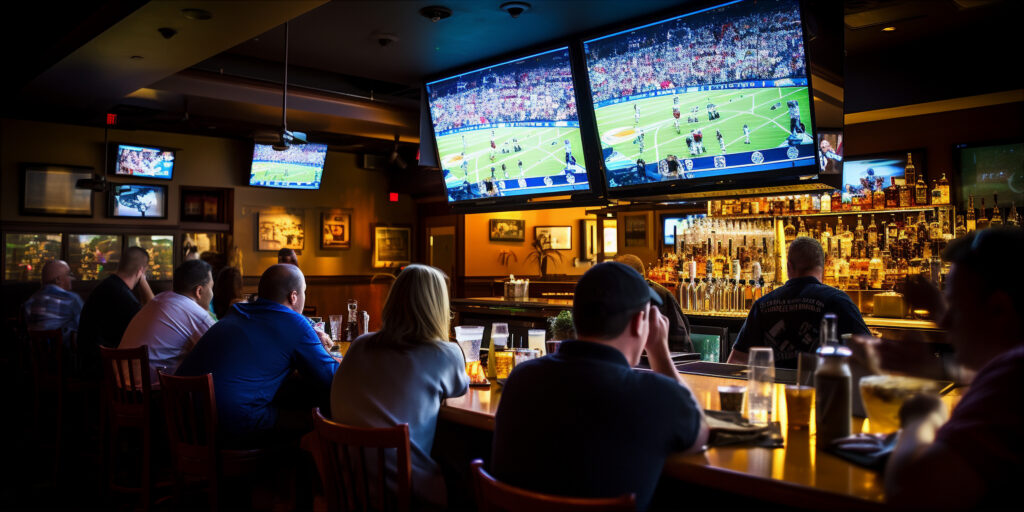
Navigating the next 10% Growth through Technology
By Brad Van Orsow, Director of Marketing at UrVenue
Stop me if this sounds familiar. Your executive team is celebrating the end of another record-breaking year. Sales are up, revenue is strong, and every KPI is pointing to success. Then comes the inevitable question: “Brad, this year was fantastic, but what’s your plan to deliver another 10% growth next year?” Cue the cold sweat, the racing thoughts—as you slowly recline back in your seat and stare up at the ceiling thinking, “how are we going to do that again?”
After the initial anxiety fades, one thing becomes crystal clear: The answer is Technology!
As we move through budget season, businesses across industries are grappling with the same challenge—how to achieve more with similar or limited resources. The key to success in 2025 and beyond lies in leveraging technology. Whether you’re in hospitality, entertainment, or any experience-driven industry, the smart use of tech is no longer a luxury; it’s a necessity for growth.
The Power of Technology in Hospitality
Over the last few years, technology has proven to be the catalyst for operational efficiency, guest satisfaction, and new revenue streams. From AI-driven guest experiences to automated inventory management, the advancements are staggering. Those who aren’t budgeting for technology in 2025 risk missing out on the enormous potential for revenue gains that this shift offers.
Take, for example, the simple act of selling a sports viewing seat. In the past, venues might have offered a seat for a single transaction—a flat rate for the entire day during a major sporting event, like college football Saturday. However, experts in some of the world’s top travel destinations, like Las Vegas, have revolutionized this process, turning it into a dynamic revenue stream that is constantly “flowing”. Today, venues can optimize these seats by offering time slots, premium packages, and additional upsells, transforming the traditional one-time sale into multiple touchpoints for revenue, while enhancing the overall guest experience. This modern approach is reshaping how venues sell their experiences to audiences.

Tapping into Untapped Revenue Streams
- Day-Parting and Time-Based Sales
Technology now enables operators to sell seats in blocks, maximizing occupancy throughout the day. Instead of selling a seat for 9 a.m. kickoff only to have it sit vacant by noon, venues can schedule multiple booking windows, ensuring the seat generates revenue for multiple games or events. - Dynamic Pricing Based on Demand
With smart yield management systems, you can increase prices as demand rises. Think of it as surge pricing but for your venue. When seating inventory is limited, technology enables operators to charge premium prices for high-demand games or events, turning a standard booking into the “hottest seat in town.” - Premium Seating & 3D Interactive Maps
You know your venue better than anyone. Certain seats offer the best view, ambiance, or proximity to action. With 3D interactive seating maps, you can showcase premium seating options and charge accordingly. This not only enhances guest experience but also drives significant revenue uplift. - Combatting the No-Show Problem
The dreaded no-show is a challenge every operator faces, but it doesn’t have to be a financial loss. By requiring deposits, pre-payment options, or food and beverage minimums at the time of booking, venues can protect revenue while encouraging greater commitment from patrons. This is particularly critical during high-demand events when every seat matters. - Distribution
Venues now have the ability to distribute either their premium or distressed inventory in ways like never before, without upfront charges. Marketplace distribution capabilities allow operators to seamlessly provide available inventory to entire networks of third-party resellers and affiliates well in advance of their events. This leads to quicker sellouts, the ability to leverage dynamic pricing as the seats book, and ultimately, higher revenues across the board.
Catering to the Experiential Generations
Today’s customers, particularly Millennials and Gen Z, prioritize experiences over material goods. In fact, 78% of Millennials would rather spend money on experiences than on material things. This shift in consumer behavior presents a golden opportunity for hospitality businesses.
The experience economy is thriving, with global experiential travel expected to reach $12.4 billion by 2030 . For these customers, the value proposition goes beyond price—it’s about the memories they’ll create, the stories they’ll share, and the photos they’ll post on Instagram. Smart venues are already capitalizing on this by offering unique, shareable experiences, and technology is the backbone that makes this possible.
Real-Time Intel is the Path to Guest Satisfaction
The best operators are those who recognize that excellent guest service is a non-negotiable. Technology plays a pivotal role in this. Whether through real-time guest feedback systems, AI-driven personalization, or automated service features, technology ensures that each guest has a seamless, unforgettable experience from the moment they book to the moment they leave.
For example, personalized recommendations based on a guest’s booking history or preferences can enhance their stay. AI-powered tools can automate table management, freeing staff to focus on delivering top-notch service. The possibilities are endless, and the benefits are immediate.
The Future of Hospitality is Technology-Driven
Regardless of whether you run a nightclub, bar, lounge, casino, dayclub, or live event venue, the common denominator is simple: happy guests mean better business. And technology is your lifeline for improving both.
As you finalize your 2025 budget, ask yourself this: Are you fully capitalizing on what technology can do for your business? And if your answer is anything other than a firm YES, remember this: those who invest in technology today will reap the rewards tomorrow. Whether it’s through new revenue streams, enhanced guest experiences, or operational efficiencies, technology has the power to unlock untapped potential and position your business for sustained growth in the years to come.
In a world where guest expectations are evolving rapidly, the hospitality industry must adapt. Investing in technology is no longer just about staying competitive—it’s about thriving. From dynamic pricing models to immersive guest experiences, the tools are available to ensure that 2025 isn’t just another good year—it’s your best year yet.
So, as your team comes to you with the all-too-familiar question of how to find that extra 10%, you’ll be ready with an answer: Technology!
Talk to one of our trusted advisors at UrVenue today and discover how our innovative solutions can help you continue to grow in 2025 and beyond. Whether it’s streamlining operations, optimizing guest experiences, or boosting your bottom line, we’re here to partner with you every step of the way.
Sources
* “Experiences over Things: What Millennials and Gen Z Want,” [Forbes].
** “Global Experiential Travel Market to Reach $12.4 Billion by 2030,” [Global Market Insights].
About the Author

Brad Van Orsow is the Director of Marketing at UrVenue, where he spearheads strategic initiatives that drive innovation and growth across the hospitality industry. With over 15 years of marketing experience, Brad has developed a reputation for blending creative solutions with data-driven insights to transform brands and enhance customer engagement. His expertise spans digital marketing, brand management, and cutting-edge technology integration, making him a vital force in shaping how venues and resorts maximize their operational efficiency and revenue potential.
At UrVenue, Brad leads a team dedicated to promoting groundbreaking products like PXMS (Property Experience Management Systems), enabling resorts and hospitality venues to unify bookings, elevate guest experiences, and optimize venue management. His passion for leveraging technology to simplify complex operations positions him as a thought leader in hospitality marketing.
Brad holds a degree in Business Administration from the University of Nevada and has worked with leading brands in the travel, hospitality, and entertainment sectors throughout his career. When not developing impactful marketing strategies, he enjoys exploring the latest industry trends and sharing his insights through speaking engagements and thought leadership content.